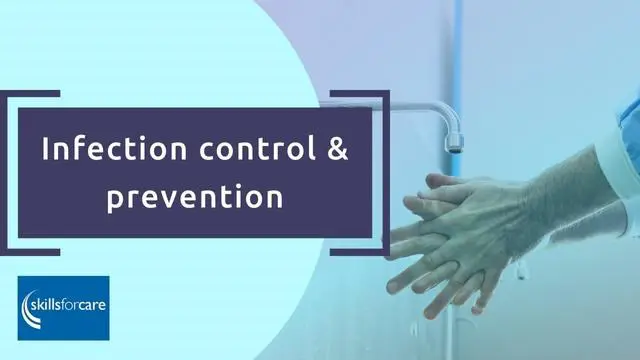
Infection prevention and control (in health and social care)
Essential IPC training for health and social care practitioners
Laser Learning
Summary
- Reed Courses Certificate of Completion - Free
Add to basket or enquire
Overview
This short course, aimed at a health and social care professional, looks at policies and procedures for infection prevention and control, and how to cut down the risk of an outbreak of infection.
Learn how to use Personal Protection Equipment (PPE) correctly, cleaning and decontamination, infection prevention and control in elderly care, and the importance of good personal hygiene.
Achievement
Certificates
Reed Courses Certificate of Completion
Digital certificate - Included
Will be downloadable when all lectures have been completed.
Course media
Description
Learning outcomes
- The learner will be able to work in a way that minimises the spread of infection and will be able to describe best practice in infection control to others
- The learner will understand the importance of hand hygiene, Personal Protective Equipment, a safe and clean ‘non-touch’ technique, and the safe disposal of sharps
- The learner will know how to break the chain of infection
Advantages of this course
- In a health and social care setting, you are likely to be in a variety of different situations in which the spread of infection is heightened, as is the risk of being exposed to infectious diseases and illness. You are also likely to be caring for and supporting vulnerable people, such as people with lowered immunity and the elderly. Infection prevention and control is therefore, essential, and as much for your own safety as anyone else’s.
- This course contains specific advice on how the Care Quality Commission (CQC) inspects care providers on infection prevention and control, and summarises guidance from NICE.
Who is this course for?
This short course will serve as a refresher to an experienced practitioner about the importance of IPC, and as an introduction to the responsibility to a practitioner who is new to role.
Requirements
A computer, mobile, or tablet and an internet connection
Questions and answers
Currently there are no Q&As for this course. Be the first to ask a question.
Reviews
Currently there are no reviews for this course. Be the first to leave a review.
Legal information
This course is advertised on reed.co.uk by the Course Provider, whose terms and conditions apply. Purchases are made directly from the Course Provider, and as such, content and materials are supplied by the Course Provider directly. Reed is acting as agent and not reseller in relation to this course. Reed's only responsibility is to facilitate your payment for the course. It is your responsibility to review and agree to the Course Provider's terms and conditions and satisfy yourself as to the suitability of the course you intend to purchase. Reed will not have any responsibility for the content of the course and/or associated materials.



